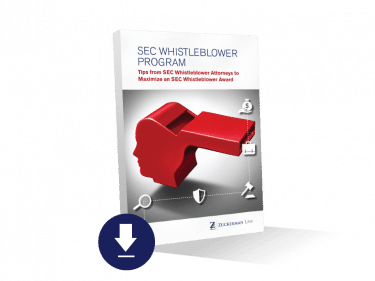
Whistleblower Lawyers Representing Employees in the Banking Industry
The banking whistleblower lawyers at Zuckerman Law, a Washington DC firm representing banking whistleblowers nationwide, have extensive experience representing whistleblowers in the financial services industry, including whistleblowers at Goldman Sachs, JP Morgan Chase, Wells Fargo, Bank of America, Deutsche Bank, HSBC, and other financial institutions. Click here to read reviews from our clients.
We have substantial experience representing whistleblowers in the financial services industry in whistleblower rewards and whistleblower retaliation cases. Call our whistleblower lawyers today for a confidential consultation at 202-262-8959.






Remedies or Damages in Banking/Financial Services Whistleblower Retaliation Cases
Click here to learn about the damages that can be recovered in a whistleblower retaliation case.
Are Disclosures About Consumer Financial Fraud Protected Under Federal Whistleblower Laws?
Yes, the anti-retaliation provision of the Consumer Financial Protection Act provides a cause of action for corporate whistleblowers who suffer retaliation for raising concerns about potential violations of rules or regulations of the Consumer Financial Protection Bureau.
OSHA has issued final rules implementing the whistleblower protection provision of the Consumer Financial Protection Act (CFPA). Enacted as Section 1057 of the Dodd-Frank Act, the CFPA’s whistleblower protection provision provides robust protection to employees who disclose fraud related to consumer financial protection services.
The whistleblower protection provision of the Sarbanes-Oxley Act also provides strong protection for whistleblowers. Click here to download our free guide to the Sarbanes-Oxley whistleblower protection law.
Banking Industry Employees Protected by the Consumer Financial Protection Whistleblower Law
The term “covered employee” means “any individual performing tasks related to the offering or provision of a consumer financial product or service.” The CFPA defines a “consumer financial product or service” to include “a wide variety of financial products or services offered or provided for use by consumers primarily for personal, family, or household purposes, and certain financial products or services that are delivered, offered, or provided in connection with a consumer financial product or service . . . Examples of these include . .. residential mortgage origination, lending, brokerage and servicing, and related products and services such as mortgage loan modification and foreclosure relief; student loans; payday loans; and other financial services such as debt collection, credit reporting, credit cards and related activities, money transmitting, check cashing and related activities, prepaid cards, and debt relief services.”
Recently the Fifth Circuit Court of Appeals held in Calderone v. Sonic Houston JLR, L.P that the CFPA does not protect employees of auto dealers.
Scope of Protected Whistleblowing About Consumer Financial Protection Violations
The CFPA protects disclosures made to an employer, to the Consumer Financial Protection Bureau or any State, local, or Federal, government authority or law enforcement agency concerning any act or omission that the employee reasonably believes to be a violation of any CFPB regulation or any other consumer financial protection law that the Bureau enforces. This includes several federal laws regulating “unfair, deceptive, or abusive practices . . . related to the provision of consumer financial products or services.”
Some of the matters the CFPB regulates include:
- kickbacks paid to mortgage issuers or insurers;
- deceptive advertising;
- discriminatory lending practices, including a violation of the Equal Credit Opportunity Act (“ECOA”);
- excessive fees;
- any false, deceptive, or misleading representation or means in connection with the collection of any debt; and
- debt collection activities that violate the Fair Debt Collection Practices Act (FDCPA).
The ECOA prohibits creditors from discriminating against “any applicant, with respect to any aspect of a credit transaction—on the basis of race, color, religion, national origin, sex or marital status, or age (provided the applicant has the capacity to contract).” 15 U.S.C. § 1691(a)(1).
CFPA protected conduct includes disclosures concerning:
- Loan fraud – Where the plaintiff banker reported a fellow banker for preparing a loan for disbursement without providing the borrower three days to rescind their decision to borrow as required by state and federal consumer protection statutes, the District Court for the Southern District of West Virginia held this could be protected activity. Vaghela v. Huntington Bancshares, Inc., 2018 WL 2014087 (S.D. W.Va. Apr. 30, 2018).
- Mortgage overbilling – Where the plaintiff mortgage attorney reported what he believed to be a widespread practice of significant overbilling of mortgage loans by a mortgage foreclosure firm, the District Court for the District of Maryland held that this could be protected. Yoder v. O’Neil Group, LLC, 2017 WL 6206074 (D. Md. Dec. 8, 2017).
- Banking fraud – Where former bank employees alleged termination for reporting fraudulent sales practices that they alleged were violations of the Truth in Lending Act, the Home Ownership Equity Protection Act, and the Real Estate and Settlement Procedures Act, the District Court for the Northern District of Illinois held reporting violations of any of these statutes would be protected activity and retaliatory termination for objecting to these violations would violate the CFPA. Lysik v. Citibank, N.A., 2017 WL 4164037 (N.D. Ill. Sep. 20, 2017).
- Lapses in bank management and judgment – Where a bank’s treasurer and chief financial officer uncovered and reported serious mismanagement of a bank and its funds, including the bank’s president using the business credit card for personal expenses and engaging in pattern of unusual check cashing by cashing checks by placing holds on employee accounts, the District Court for the District of Massachusetts held this could constitute protected activity. Becotte v. Cooperative Bank, 2017 WL 886967 (D. Mass. Mar. 6, 2017).
- While the CFPB’s whistleblower protections are relatively broad, simply asking questions about alleged violations of banking laws will generally not constitute protected conduct. The Sixth Circuit Court of Appeals has held that where a mortgage loan originator had a conversation with his employer bank’s mortgage compliance department about the obligation to mail out adverse action notices informing mortgage loan applicants that they had been denied loans and liability for failure to do so, he did not engage in protected activity. The court held the plaintiff-employee did not engage in protected activity because he did not object to the unlawful practice and instead only asked questions confirming and clarification what he should do in the future. The court, in its decision, implied that if the mortgage loan originator had instead objected to unlawful activity rather than only asking questions, his activity would have been protected under the CFPA, and his employer may have violated the statute by terminating his employment. See Veard v. F&M Bank, 704 Fed. Appx. 469 (6th Cir. 2017).
Reasonable Belief Standard in Banking Whistleblower Retaliation Cases
The CFPA whistleblower protection law employs a reasonable belief standard. As long as the plaintiff’s belief is reasonable, the whistleblower is protected, even if the whistleblower makes a mistake of law or fact about the underlying violation of a law or regulation under the CFPB’s jurisdiction.
Prohibited Whistleblower Retaliation Against Financial Services/Banking Industry Employees
The CFPA whistleblower law proscribes a broad range of adverse employment actions, including terminating, “intimidating, threatening, restraining, coercing, blacklisting or disciplining, any covered employee or any authorized representative of covered employees” because of the employee’s protected whistleblowing.
Proving CFPA Whistleblower Retaliation
To prevail in a CFPA whistleblower claim, the whistleblower need only prove that his or her protected conduct was a contributing factor in the adverse employment action, i.e., that the protected activity, alone or in combination with other factors, affected in some way the outcome of the employer’s decision. Where the employer takes the adverse employment action “shortly after” learning about the protected activity, courts may infer a causal connection between the two. Van Asdale v. Int’l Game Tech., 577 F.3d 989, 1001 (9th Cir. 2009).
Filing a CFPA Financial Whistleblower Retaliation Claim
CFPA complaints are filed with OSHA, and the statute of limitations is 180 days from the date when the alleged violation occurs, which is the date on which the retaliatory decision has been both made and communicated to the whistleblower.
The complaint need not be in any particular form and can be filed orally with OSHA. A CFPA complaint need not meet the stringent pleading requirements that apply in federal court, and instead the administrative complaint “simply alerts OSHA to the existence of the alleged retaliation and the complainant’s desire that OSHA investigate the complaint.” If the complaint alleges each element of a CFPA whistleblower retaliation claim and the employer does not show by clear and convincing that it would have taken the same action in the absence of the alleged protected activity, OSHA will conduct an investigation.
OSHA investigates CFPA complaints to determine whether there is reasonable cause to believe that protected activity was a contributing factor in the alleged adverse action. If OSHA finds a violation, it can order reinstatement of the whistleblower and other relief.
Is a Bank Whistleblower Eligible for an Award for Reporting Fraud?
Yes, bank whistleblowers may be eligible for an award under several whistleblower-reward programs. For example, the SEC Whistleblower Program will issue awards to whistleblowers who provide original information that leads to enforcement actions with total monetary sanctions in excess of $1 million. A whistleblower may receive an award of 10-30 percent of the monetary sanctions collected. The program also permits whistleblowers to submit anonymous tips to the SEC if represented by an attorney. The largest SEC award to date is more than $30 million to a whistleblower living in a foreign country.
Download our free guide SEC Whistleblower Program: Tips from SEC Whistleblower Attorneys to Maximize an SEC Whistleblower Award.
Sarbanes-Oxley Whistleblower Protection for Banking and Financial Services Employees
The whistleblower protection provision of the Sarbanes-Oxley Act provides robust protection to corporate whistleblowers, and indeed some SOX whistleblowers have achieved substantial recoveries. A former in-house counsel at a biotechnology company recovered $11 million in a SOX whistleblower retaliation case alleging that the company fired him for disclosing violations of the Foreign Corrupt Practices Act.
On the fifteenth anniversary of SOX, leading whistleblower law firm Zuckerman Law released a free guide to the SOX whistleblower protection law: “Sarbanes-Oxley Whistleblower Protection: Robust Protection for Corporate Whistleblowers.” The guide summarizes SOX whistleblower protections and offers concrete tips for corporate whistleblowers based on lessons learned during years of litigating SOX whistleblower cases.
The goal of the guide is to arm corporate whistleblowers with the knowledge to effectively combat whistleblower retaliation, avoid the pitfalls that can weaken a SOX whistleblower case, and formulate an effective strategy to obtain the maximum recovery.
Banking and Financial Services Whistleblower Lawyers
If you are seeking representation in a whistleblower protection case, click here, or call us at 202-262-8959 to schedule a free preliminary consultation.
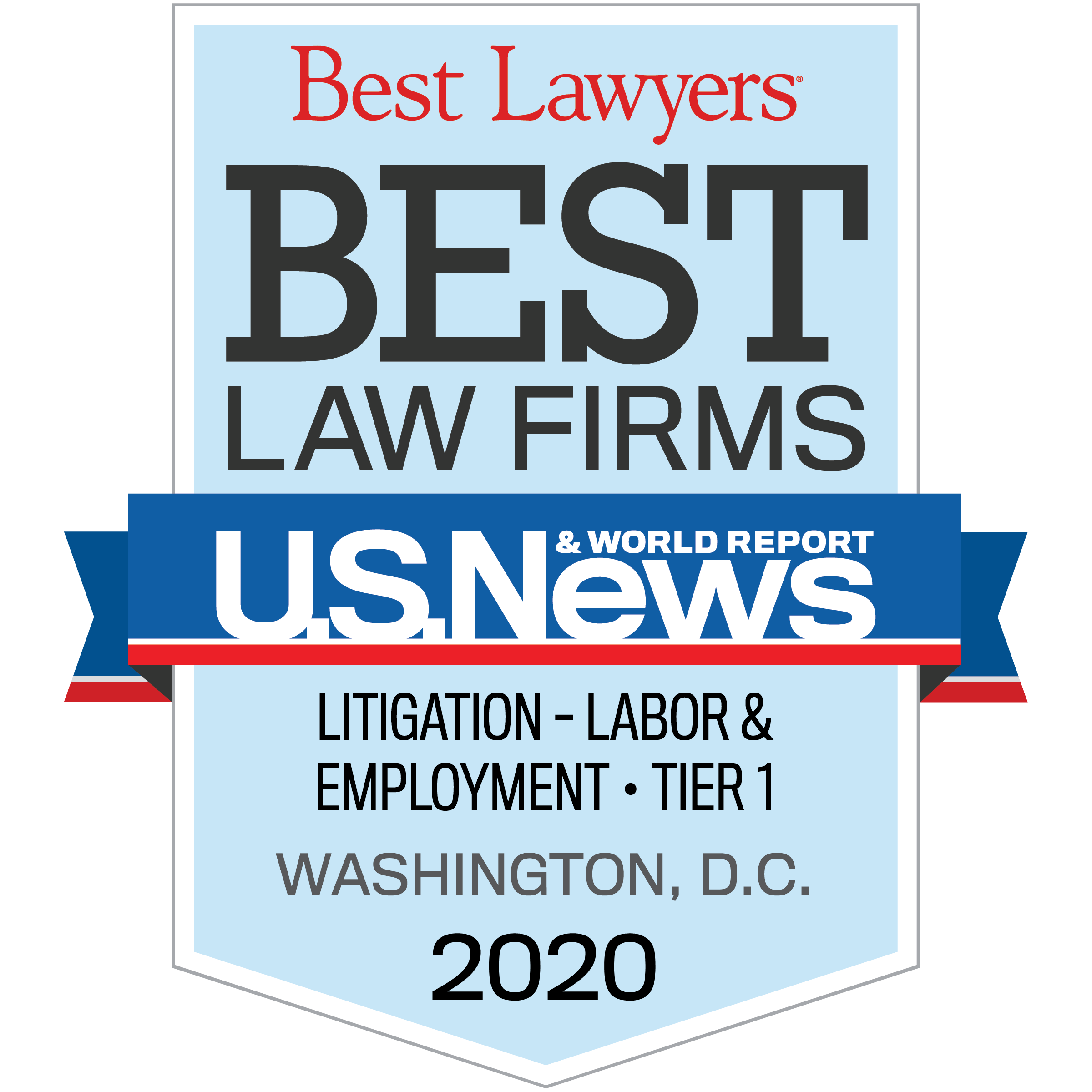
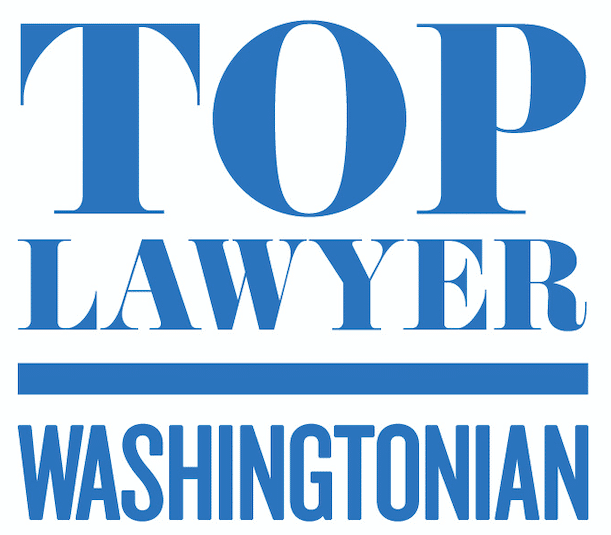
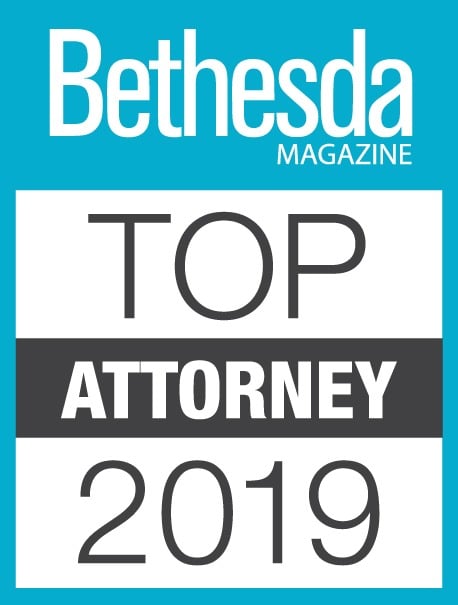
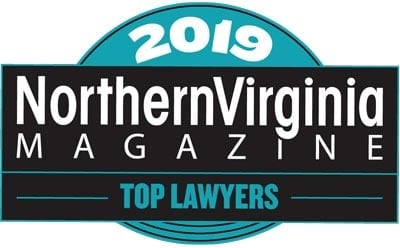
We have assembled a team of leading whistleblower lawyers to provide top-notch representation to whistleblowers. Recently Washingtonian magazine named Jason Zuckerman and Eric Bachman top whistleblower lawyers. Both Bachman and Zuckerman served in senior positions at the Office of Special Counsel, where they oversaw investigations of whistleblower retaliation claims and whistleblower disclosures, and enforced the Whistleblower Protection Act. Let us put our unique experience and credentials to work for you:
- U.S. News and Best Lawyers® have named Zuckerman Law a Tier 1 firm in Litigation – Labor and Employment in the Washington DC metropolitan area.
- Matt Stock is a Certified Public Accountant, Certified Fraud Examiner and former KPMG external auditor. As an auditor, Stock developed an expertise in financial statement analysis and internal controls testing and fraud recognition. He uses his auditing experience to help IRS, CFTC and SEC whistleblowers investigate and disclose complex financial frauds to the government and develop a roadmap for the SEC to take an enforcement action. Matt has been interviewed on CNBC, quoted extensively about whistleblower rewards in the media, and is the lead author of SEC Whistleblower Program: Tips from SEC Whistleblower Attorneys to Maximize an SEC Whistleblower Award.
- Dallas Hammer has extensive experience representing whistleblowers in retaliation and rewards claims and has written extensively about cybersecurity whistleblowing. He was selected by his peers to be included in The Best Lawyers in America® in the category of employment law in 2021 and 2022.
- Described by the National Law Journal as a “leading whistleblower attorney,” founding Principal Jason Zuckerman has established precedent under a wide range of whistleblower protection laws and obtained substantial compensation for his clients and recoveries for the government in whistleblower rewards and whistleblower retaliation cases. He served on the Department of Labor’s Whistleblower Protection Advisory Committee, which makes recommendations to the Secretary of Labor to improve OSHA’s administration of federal whistleblower protection laws. Zuckerman also served as Senior Legal Advisor to the Special Counsel at the U.S. Office of Special Counsel, the federal agency charged with protecting whistleblowers in the federal government. At OSC, he oversaw investigations of whistleblower claims and obtained corrective action or relief for whistleblowers.
- Zuckerman was recognized by Washingtonian magazine as a “Top Whistleblower Lawyer” (2020, 2018, 2017, 2015, 2009, and 2007), selected by his peers to be included in The Best Lawyers in America® in the category of employment law (2011-2021) and in SuperLawyers in the category of labor and employment law (2012 and 2015-2021), is rated 10 out of 10 by Avvo, based largely on client reviews, and is rated AV Preeminent® by Martindale-Hubbell based on peer reviews
- We have published extensively on whistleblower rights and protections, and speak nationwide at seminars and continuing legal education conferences. We blog about new developments under whistleblower retaliation and rewards laws at the Whistleblower Protection Law and SEC Awards Blog, and in 2019, the National Law Review awarded Zuckerman its “Go-To Thought Leadership Award” for his analysis of developments in whistleblower law.
- Our attorneys have been quoted by and published articles in leading business, accounting, and legal periodicals, including The Wall Street Journal, Forbes, CNBC, MarketWatch, Vox, Accounting Today, Going Concern, Law360 – Expert Analysis, Investopedia, The National Law Review, inSecurities, Government Accountability Project, S&P Global Market Intelligence, Risk & Compliance Magazine, The D&O Diary, The Compliance and Ethics Blog, Compliance Week and other printed and electronic media.
Tips for Whistleblowers to Become Eligible for an SEC Whistleblower Bounty
CFPA Protected Whistleblowing
The CFPB has authority over a broad array of consumer financial products and services, including mortgages, deposit taking, credit cards, loan servicing, check guaranteeing, collection of consumer report data, debt collection associated with consumer financial products and services, real estate settlement, money transmitting, and financial data processing. In addition, the CFPB is the primary consumer compliance supervisory, enforcement, and rulemaking authority over depository institutions with more than $10 billion in assets.
Some of the consumer financial protection laws that the CFPB enforces include:
- Real Estate Settlement Procedures Act;
- Home Mortgage Disclosure Act;
- Equal Credit Opportunity Act;
- Truth in Lending Act;
- Truth in Savings Act;
- Fair Credit Billing Act;
- Fair Credit Reporting Act;
- Electronic Fund Transfer Act;
- Consumer Leasing Act;
- Fair Debt Collection Practices Act;
- Home Owners Protection Act; and
- Secure and Fair Enforcement for Mortgage Licensing Act
CFPA Whistleblower Protection Law
From https://www.whistleblowers.gov/statutes/dfa_1057
Consumer Financial Protection Act of 2010 (CFPA),
Section 1057 of the Dodd-Frank Wall Street Reform and Consumer Protection Act of 2010,
12 U.S.C. § 5567
Enacted July 21, 2010
Note: Effective date of July 21, 2011, has been set by the Secretary of the Treasury
pursuant to Sections 1058 and 1062.
§1057. EMPLOYEE PROTECTION.
(a) In General – No covered person or service provider shall terminate or in any other way discriminate against, or cause to be terminated or discriminated against, any covered employee or any authorized representative of covered employees by reason of the fact that such employee or representative, whether at the initiative of the employee or in the ordinary course of the duties of the employee (or any person acting pursuant to a request of the employee), has –
(1) provided, caused to be provided, or is about to provide or cause to be provided, information to the employer, the Bureau, or any other State, local, or Federal, government authority or law enforcement agency relating to any violation of, or any act or omission that the employee reasonably believes to be a violation of, any provision of this title or any other provision of law that is subject to the jurisdiction of the Bureau, or any rule, order, standard, or prohibition prescribed by the Bureau;
(2) testified or will testify in any proceeding resulting from the administration or enforcement of any provision of this title or any other provision of law that is subject to the jurisdiction of the Bureau, or any rule, order, standard, or prohibition prescribed by the Bureau;
(3) filed, instituted, or caused to be filed or instituted any proceeding under any Federal consumer financial law; or
(4) objected to, or refused to participate in, any activity, policy, practice, or assigned task that the employee (or other such person) reasonably believed to be in violation of any law, rule, order, standard, or prohibition, subject to the jurisdiction of, or enforceable by, the Bureau.
(b) Definition of Covered Employee – For the purposes of this section, the term ‘covered employee’ means any individual performing tasks related to the offering or provision of a consumer financial product or service.
(c) Procedures and Timetables –
(1) COMPLAINT-
(A) IN GENERAL- A person who believes that he or she has been discharged or otherwise discriminated against by any person in violation of subsection (a) may, not later than 180 days after the date on which such alleged violation occurs, file (or have any person file on his or her behalf) a complaint with the Secretary of Labor alleging such discharge or discrimination and identifying the person responsible for such act.
(B) ACTIONS OF SECRETARY OF LABOR- Upon receipt of such a complaint, the Secretary of Labor shall notify, in writing, the person named in the complaint who is alleged to have committed the violation, of–
(i) the filing of the complaint;
(ii) the allegations contained in the complaint;
(iii) the substance of evidence supporting the complaint; and
(iv) opportunities that will be afforded to such person under paragraph (2).
(2) INVESTIGATION BY SECRETARY OF LABOR-
(A) IN GENERAL- Not later than 60 days after the date of receipt of a complaint filed under paragraph (1), and after affording the complainant and the person named in the complaint who is alleged to have committed the violation that is the basis for the complaint an opportunity to submit to the Secretary of Labor a written response to the complaint and an opportunity to meet with a representative of the Secretary of Labor to present statements from witnesses, the Secretary of Labor shall–
(i) initiate an investigation and determine whether there is reasonable cause to believe that the complaint has merit; and
(ii) notify the complainant and the person alleged to have committed the violation of subsection (a), in writing, of such determination.
(B) NOTICE OF RELIEF AVAILABLE- If the Secretary of Labor concludes that there is reasonable cause to believe that a violation of subsection (a) has occurred, the Secretary of Labor shall, together with the notice under subparagraph (A)(ii), issue a preliminary order providing the relief prescribed by paragraph (4)(B).
(C) REQUEST FOR HEARING- Not later than 30 days after the date of receipt of notification of a determination of the Secretary of Labor under this paragraph, either the person alleged to have committed the violation or the complainant may file objections to the findings or preliminary order, or both, and request a hearing on the record. The filing of such objections shall not operate to stay any reinstatement remedy contained in the preliminary order. Any such hearing shall be conducted expeditiously, and if a hearing is not requested in such 30-day period, the preliminary order shall be deemed a final order that is not subject to judicial review.
(3) GROUNDS FOR DETERMINATION OF COMPLAINTS-
(A) IN GENERAL- The Secretary of Labor shall dismiss a complaint filed under this subsection, and shall not conduct an investigation otherwise required under paragraph (2), unless the complainant makes a prima facie showing that any behavior described in paragraphs (1) through (4) of subsection (a) was a contributing factor in the unfavorable personnel action alleged in the complaint.
(B) REBUTTAL EVIDENCE- Notwithstanding a finding by the Secretary of Labor that the complainant has made the showing required under subparagraph (A), no investigation otherwise required under paragraph (2) shall be conducted, if the employer demonstrates, by clear and convincing evidence, that the employer would have taken the same unfavorable personnel action in the absence of that behavior.
(C) EVIDENTIARY STANDARDS- The Secretary of Labor may determine that a violation of subsection (a) has occurred only if the complainant demonstrates that any behavior described in paragraphs (1) through (4) of subsection (a) was a contributing factor in the unfavorable personnel action alleged in the complaint. Relief may not be ordered under subparagraph (A) if the employer demonstrates by clear and convincing evidence that the employer would have taken the same unfavorable personnel action in the absence of that behavior.
(4) ISSUANCE OF FINAL ORDERS; REVIEW PROCEDURES-
(A) TIMING- Not later than 120 days after the date of conclusion of any hearing under paragraph (2), the Secretary of Labor shall issue a final order providing the relief prescribed by this paragraph or denying the complaint. At any time before issuance of a final order, a proceeding under this subsection may be terminated on the basis of a settlement agreement entered into by the Secretary of Labor, the complainant, and the person alleged to have committed the violation.
(B) PENALTIES-
(i) ORDER OF SECRETARY OF LABOR- If, in response to a complaint filed under paragraph (1), the Secretary of Labor determines that a violation of subsection (a) has occurred, the Secretary of Labor shall order the person who committed such violation–
(I) to take affirmative action to abate the violation;
(II) to reinstate the complainant to his or her former position, together with compensation (including back pay) and restore the terms, conditions, and privileges associated with his or her employment; and
(III) to provide compensatory damages to the complainant.
(ii) PENALTY- If an order is issued under clause (i), the Secretary of Labor, at the request of the complainant, shall assess against the person against whom the order is issued, a sum equal to the aggregate amount of all costs and expenses (including attorney fees and expert witness fees) reasonably incurred, as determined by the Secretary of Labor, by the complainant for, or in connection with, the bringing of the complaint upon which the order was issued.
(C) PENALTY FOR FRIVOLOUS CLAIMS- If the Secretary of Labor finds that a complaint under paragraph (1) is frivolous or has been brought in bad faith, the Secretary of Labor may award to the prevailing employer a reasonable attorney fee, not exceeding $1,000, to be paid by the complainant.
(D) DE NOVO REVIEW-
(i) FAILURE OF THE SECRETARY TO ACT- If the Secretary of Labor has not issued a final order within 210 days after the date of filing of a complaint under this subsection, or within 90 days after the date of receipt of a written determination, the complainant may bring an action at law or equity for de novo review in the appropriate district court of the United States having jurisdiction, which shall have jurisdiction over such an action without regard to the amount in controversy, and which action shall, at the request of either party to such action, be tried by the court with a jury.
(ii) PROCEDURES- A proceeding under clause (i) shall be governed by the same legal burdens of proof specified in paragraph (3). The court shall have jurisdiction to grant all relief necessary to make the employee whole, including injunctive relief and compensatory damages, including –
(I) reinstatement with the same seniority status that the employee would have had, but for the discharge or discrimination;
(II)the amount of back pay, with interest; and
(III)compensation for any special damages sustained as a result of the discharge or discrimination, including litigation costs, expert witness fees, and reasonable attorney fees.
(E) OTHER APPEALS- Unless the complainant brings an action under subparagraph (D), any person adversely affected or aggrieved by a final order issued under subparagraph (A) may file a petition for review of the order in the United States Court of Appeals for the circuit in which the violation with respect to which the order was issued, allegedly occurred or the circuit in which the complainant resided on the date of such violation, not later than 60 days after the date of the issuance of the final order of the Secretary of Labor under subparagraph (A). Review shall conform to chapter 7 of title 5, United States Code. The commencement of proceedings under this subparagraph shall not, unless ordered by the court, operate as a stay of the order. An order of the Secretary of Labor with respect to which review could have been obtained under this subparagraph shall not be subject to judicial review in any criminal or other civil proceeding.
(5) FAILURE TO COMPLY WITH ORDER-
(A) ACTIONS BY THE SECRETARY- If any person has failed to comply with a final order issued under paragraph (4), the Secretary of Labor may file a civil action in the United States district court for the district in which the violation was found to have occurred, or in the United States district court for the District of Columbia, to enforce such order. In actions brought under this paragraph, the district courts shall have jurisdiction to grant all appropriate relief including injunctive relief and compensatory damages.
(B) CIVIL ACTIONS TO COMPEL COMPLIANCE- A person on whose behalf an order was issued under paragraph (4) may commence a civil action against the person to whom such order was issued to require compliance with such order. The appropriate United States district court shall have jurisdiction, without regard to the amount in controversy or the citizenship of the parties, to enforce such order.
(C) AWARD OF COSTS AUTHORIZED- The court, in issuing any final order under this paragraph, may award costs of litigation (including reasonable attorney and expert witness fees) to any party, whenever the court determines such award is appropriate.
(D) MANDAMUS PROCEEDINGS- Any nondiscretionary duty imposed by this section shall be enforceable in a mandamus proceeding brought under section 1361 of title 28, United States Code.
(d) Unenforceability of Certain Agreements-
(1) NO WAIVER OF RIGHTS AND REMEDIES- Except as provided under paragraph (3), and notwithstanding any other provision of law, the rights and remedies provided for in this section may not be waived by any agreement, policy, form, or condition of employment, including by any predispute arbitration agreement.
(2) NO PREDISPUTE ARBITRATION AGREEMENTS- Except as provided under paragraph (3), and notwithstanding any other provision of law, no predispute arbitration agreement shall be valid or enforceable to the extent that it requires arbitration of a dispute arising under this section.
(3) EXCEPTION- Notwithstanding paragraphs (1) and (2), an arbitration provision in a collective bargaining agreement shall be enforceable as to disputes arising under subsection (a)(4), unless the Bureau determines, by rule, that such provision is inconsistent with the purposes of this title.
§1058. EFFECTIVE DATE.
This subtitle shall become effective on the designated transfer date.
§1062. DESIGNATED TRANSFER DATE.
(a) IN GENERAL.–Not later than 60 days after the date of enactment of this Act, the Secretary shall –
(1) in consultation with the Chairman of the Board of Governors, the Chairperson of the Corporation, the Chairman of the Federal Trade Commission, the Chairman of the National Credit Union Administration Board, the Comptroller of the Currency, the Director of the Office of Thrift Supervision, the Secretary of the Department of Housing and Urban Development, and the Director of the Office of Management and Budget, designate a single calendar date for the transfer of functions to the Bureau under section 1061; and
(2) publish notice of that designated date in the Federal Register.
(b) CHANGING DESIGNATION.–The Secretary –
(1) may, in consultation with the Chairman of the Board of Governors, the Chairperson of the Federal Deposit Insurance Corporation, the Chairman of the Federal Trade Commission, the Chairman of the National Credit Union Administration Board, the Comptroller of the Currency, the Director of the Office of Thrift Supervision, the Secretary of the Department of Housing and Urban Development, and the Director of the Office of Management and Budget, change the date designated under subsection (a); and
(2) shall publish notice of any changed designated date in the Federal Register.
(c) PERMISSIBLE DATES. –
(1) IN GENERAL.–Except as provided in paragraph (2), any date designated under this section shall be not earlier than 180 days, nor later than 12 months, after the date of enactment of this Act.
(2) EXTENSION OF TIME.–The Secretary may designate a date that is later than 12 months after the date of enactment of this Act if the Secretary transmits to appropriate committees of Congress –
(A) a written determination that orderly implementation of this title is not feasible before the date that is 12 months after the date of enactment of this Act;
(B) an explanation of why an extension is necessary for the orderly implementation of this title; and
(C) a description of the steps that will be taken to effect an orderly and timely implementation of this title within the extended time period.
(3) EXTENSION LIMITED.–In no case may any date designated under this section be later than 18 months after the date of enactment of this Act.

